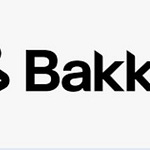Welcome to Episode 102 of Special Situation Investing.
Filmed in the beautiful Swiss Alps, Grant Williams’ 2017 interview with investor and Edelweiss Holdings founder Anthony Deden was fantastic. Two and a half hours long, the video was so enjoyable and educational we listened to it twice and decided to share the highlights with you. Despite our best efforts, the summary here won’t do justice to the wisdom shared by Mr. Deden and we highly recommend you take the time to enjoy the interview in its entirety.
Without further pontification, here are nine tidbits of wisdom gleaned from an interview we would argue wasn’t long enough. Enjoy.
1. “You come to the inevitable observation that this is all the wealth this family possesses and no one is ever going to give them any more. There's a sense of irreplaceability to this capital.
At age thirty, Anthony Deden served on the board of a finance company and was personally interested in money, but he wasn’t a money manager. His mentor, a man forty years his senior, introduced him to a few families looking for someone to manage their capital and he persuaded Deden to take the opportunity.
Beginning his career by managing money for people he knew personally fundamentally impacted Deden’s view on money and its allocation. He refers to capital as savings, he defines risk as the permanent loss of savings, and he errs on the side of inaction.
This is a reminder that capital should be respected for what it is—a hard-earned, lifetime’s worth of savings. It can easily be lost but never be truly replaced. As discussed in our piece Wealth is the Control of Time, money is essentially a battery that stores our effort and time, both of which are truly irreplaceable. Capital should be treated with the respect commensurate with this weighty fact.
2. “Take replaceable capital and deploy it to irreplaceability assets.”
While referring to capital as replaceable appears to contradict the previous quote, here Deden is referring to the replaceable nature of fiat currency. He argues an investor’s goal should be to exchange such fleeting forms of money for irreplaceable investments.
This echoes the point Murray Stahl, founder of FRMO Corp, made in a recent earnings call. He argued that converting currency into what he calls “infinite life assets” is precisely what his company is doing. He illustrates the concept by equating it to a historical gold mine.
We converted those assets, which have a relatively modest finite life…to bitcoin, which has infinite life….Let's just say we're a gold mining company in the year 1900, and that was our practice. We would sell enough gold to cover operating expenses and put the remainder in a vault. What would be its net asset value today relative to a company with the same production that just sold all its gold along the way? It would be much, much higher.
While some investors will argue Bitcoin is not an infinite life asset, that is not the point. The point is that as investors our goal is to convert the debasing currency we and our clients earn into durable, irreplaceable, and inflation-resistant assets. This reminds us of something the highly regarded Substack writer
likes to say:We earn money in fiat, save money by buying real assets, and invest privately in projects where we can positively impact the outcome.
There are many ways to pursue this goal. Just don’t be the sucker who one day realizes nothing they owned was real.
3. “The first principle I operate from is the idea of exclusion.”
It’s abundantly clear Deden is content investing in what he knows and only in what he considers quality assets.
In the interview, Deden runs through an example elimination process. Beginning with tens of thousands of global companies, he winnows the list down to just a couple hundred by applying filters such as domicile, market cap, and a couple simple profitability metrics. He concludes:
I exclude whole swaths of things from my universe of [investments]. I think that, in the whole world, there are probably 150 or 200 listed companies that I would even consider owning a piece of.
That is quite an extreme statement coming from a man who has scoured the globe for decades in search of investable companies. His list is small not because of a small circle of competence but because he has extremely stringent criteria for what qualifies as a quality company and he doesn’t compromise.
4. “If my mandate is to protect capital from inflation, taxation, and bad decisions, then the idea of seeking to find scarcity, endurance and independence is very important.”
Deden believes no honest investing firm can be summed up with labels. That said, if he were forced to chose one defining characteristic of his method, he would chose investing in scarcity. The fundamental law behind economics, scarcity is what creates value. As an example, Deden didn’t invest in a car manufacturer or even an airbag manufacture. He invested in the one company that manufactures the little exciter that goes into every airbag in the world. Without this exciter no cars would be built. That is valuable scarcity.
Endurance, Deden’s second criteria, is the concept of survivability, or better, antifragility. Because of this criteria, longstanding, family-run businesses are a large proportion of his portfolio. It’s well known that family owners tend to have a long timeframe mindset, even on the scale of multi-generational. Given that many family businesses have lasted for more than a century, its no wonder Deden is attracted to these companies.
In order to cut costs, in today’s interconnected world, most companies have accept risk in the form of dependence on outside entities such as suppliers, governments, and key customers. Dependence makes a business fragile. Independence, Deden’s third quality characteristic, allows companies to better weather downturns and black swans events. Although independence comes at a cost, it’s one Deden is happy to pay.
5. “I purposefully extracted myself, our team and our organization from the financial world.”
Listening to Deden talk, it’s immediately clear he is out of touch with the financial world and intentionally so. Living among the Swiss Alps, he physically removed himself from the hubbub of the financial world. Focusing on scarcity, endurance and independence, he is unconcerned by quarterly results, EBITDA margins, or price action. To him, forward guidance is a joke. He said:
When you extract yourself from [the finance world], your vocabulary changes. Your practice changes. Your philosophy changes. Everything changes.
As an example of vocabulary change, Deden uses the word “participation” instead of stock or security. While on the surface it may seem extreme or unnecessary, even childish, it mentally reinforces how he is buying partial ownership in real businesses and not a financial piece of paper.
6. “We own 28 participations. They all have a purpose. Some of them are more core and more permanent than others. Others are opportunistic...”
We found this quote interesting, first, because, as one would expect with such high investing criteria, it was interesting to see Deden keeps a rather concentrated portfolio. Secondly, the statement that each “participation” has a purpose really resonated with us. In our recent piece, Position Size, we discussed how we think of each of our investments as falling into three categories, generals, workouts, and asymmetric bets. Each is valuable in its own way and serves a particular purpose.
But it’s just as important to note what they are not. Deden uses the following example to illustrate how conforming to some arbitrary metric of diversification is nonsensical.
The idea of having x percent in industrials and y percent here, and overweighting these and underweighting that. It's just complete madness. It doesn't make any sense, any more than a car manufacturer thinks that he has to have x percent of an automobile in glass or y percentage in steel, etc.
Each position within a portfolio is valuable in its own way and each should serve its own purpose.
7. “What you do is you learn about business, not about stocks, but about business.”
This quote speaks to Deden’s rejection of modern finance metrics and how he purposely extracted himself from the noise of the financial world to focus instead on businesses. The interview is chalk full of Deden describing in detail different companies in which he is a part owner. From the salmon farming business to the date farming business to the barrel making business, he clearly understands the ins and outs of each company. His interest in the details reveals the mindset of a business owner and not of a stock holder.
For those of us who, like Deden, believe the key to investing is understanding and owning businesses, perhaps we would benefit from more distance from the distraction of the financial world and media. And who knows, a trip to the Swiss Alps probably wouldn’t hurt either.
8. “I have a habit of revisiting decisions—good or bad—over the years.”
United States military pilots have a longstanding tradition of performing a debrief after every flight. All individuals involved in the flight rehash its successes and failures. The idea is to cement the good and root out the bad in order to perform better the next time. The process of revisiting past decisions is similarly helpful across all aspects of life.
This statement by Deden was convicting. I’ll speak for myself and not for my cohost, but I have felt for a while that I’d benefit greatly from maintaining an investing journal. (My cohost has a near photographic memory and can recall without difficulty minute details from decades ago. So I think he’s probably set.) Chronicling investing decisions would allow periodic review and likely increasingly better returns as a result.
9. “It's not important to be looking for opportunities. What is important is to acquire an understanding so you can recognize the opportunities when you see them.”
Like much of what Deden says, this statement will sound counterintuitive to many modern investors. Our community is full of folks looking for the next opportunity, or worse, looking for a tip about the next opportunity.
We should all take Deden’s suggestion to heart and dig into areas we find interesting in search of deep understanding. Only deep understanding of a company and its industry will give you the wisdom to see an opportunity and the courage to bet heavily. As Munger advised in his recent interview on the Acquired podcast:
When you know you have an edge, you should bet heavily. They don’t teach that in business school. It’s insane. Of course you’ve got to bet heavily on your best bets.
So those are the ten top quotes that stood out to us in Grant William’s interview with Anthony Deden. We hope our poor attempt to compile some of his wisdom inspires you to listen to the entire interview. Additionally, if you want to read more from Deden, there’s an irregular journal that he writes and posts to this website. When we say irregular, the last article was posted in July of 2021. But there are twenty articles that capture Deden’s thought going back to 2011. It’s a gold mine.
With that, we’ve concluded yet another episode of the show. Thanks for your support via all your likes, shares and comments. We have benefited very much from the community that is growing here on Substack. So thank you. We will see you next week on another episode.













Share this post